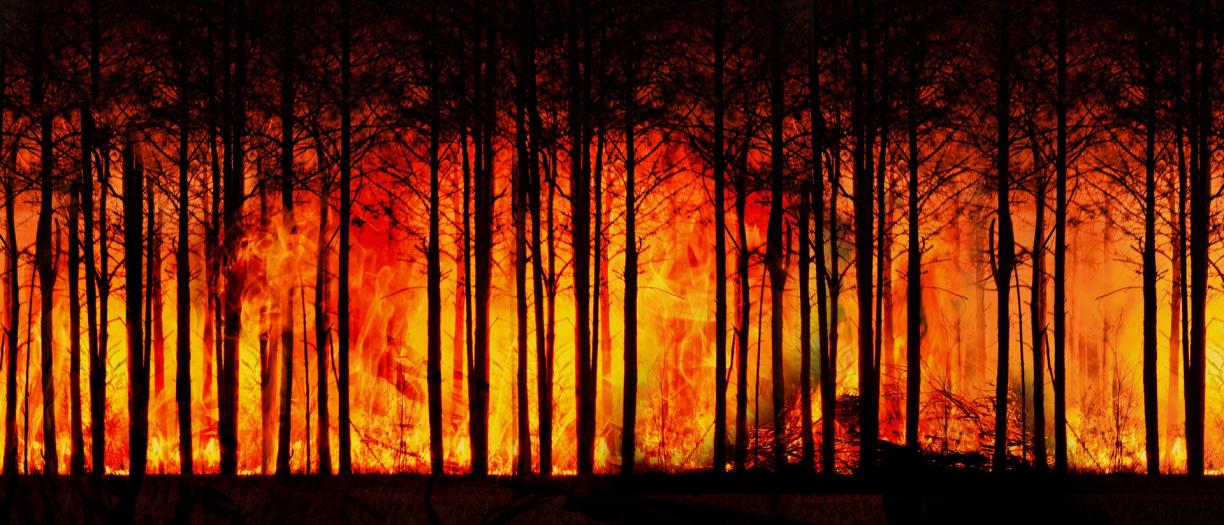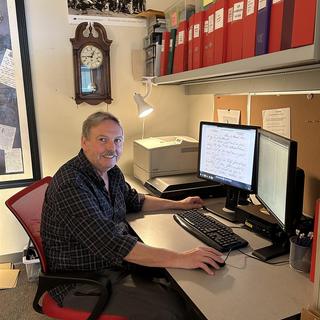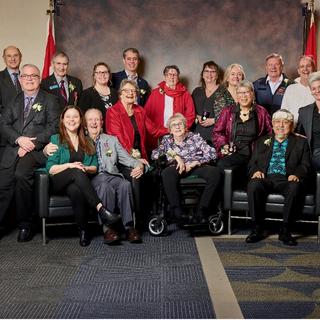Flooding, heat domes and wildfires that result in hazardous air quality, as well as significant loss of property, are becoming more frequent and more deadly. Pixabay Photo
The symposium includes a keynote presentation by Dr. Elizaveta Malinina, a Research Scientist at the Canadian Centre for Climate Modelling.
We must act now to fight climate change. This cry of alarm has been sounded many times, but it hasn’t been answered sufficiently to halt the release of greenhouse gases or the impacts of climate change, including the increased frequency and intensity of extreme weather events.
British Columbia has experienced devastating climate-related emergencies over the past few years and these are reflective of what is happening around the world. Flooding, heat domes and wildfires that result in hazardous air quality, as well as significant loss of property, are becoming more frequent and more deadly.
“In the past we used to talk about having decades to deal with climate change and now we are really talking about years,” says Dr. Erik Krogh, Director of Vancouver Island University’s (VIU’s) Applied Environmental Research Laboratories and a VIU Chemistry Professor. “The time for action is now. It’s hard to overstate the need for reducing our carbon emissions and decarbonizing our economy, but there is good news here. These actions will improve air quality, human health and save money in the long run.”
Krogh is one of the presenters at the upcoming Climate Change Symposium hosted by Awareness of Climate Change Through Education and Research (ACER), a VIU student initiative. The symposium, which is sponsored by Coastal Community Credit Union, takes place Saturday, April 23. It focuses on the Intergovernmental Panel on Climate Change’s (IPCC’s) Sixth Assessment Report and extreme weather events. The IPCC report summarizes what scientists know about climate change, its impact and future risks, and what options there are for adaption and mitigation.
Sierra Bready, ACER Coordinator, says the organization decided to focus on the local impacts of climate change to help people relate more to the issue.
“I think the local focus will help people better understand what’s going on and where we should go from here,” says Bready. “These are local phenomena which everyone has experienced but it’s not just happening here, it is happening around the world.”
Bready says she hopes that is a driver for people to come and learn about what has happened, what’s happening and how to move forward.

Keynote speaker Dr. Elizaveta Malinina, a Research Scientist at the Canadian Centre for Climate Modelling and Analysis, will open the symposium at 9 am with an update on the IPCC’s latest report. Malinina was a contributing author on the climate effects of volcanic eruptions and served as a chapter scientist for the section on human influence on the climate system.
Malinina’s keynote is followed by three shorter presentations:
- Malinina presents again, from 10-10:30 am, and will discuss the Human Influence on the 2021 British Columbia Flood.
- Dr. Jeff Lewis, a VIU Geography Professor, presents the 2021 Heat Dome, from 11-11:30 am. He’ll discuss the recent heat dome event experienced last summer and the conditions that lead to regional heat domes.
- Krogh presents Climate and Air Quality, from 11:30 am to noon. He’ll discuss the co-incidental benefits of climate action on human and environmental health. This presentation will include the benefits of decarbonizing energy and transportation sectors on air quality.
The symposium takes place from 9 am to 1 pm on April 23 at VIU’s Nanaimo campus in Building 355, Room 203. The symposium is free and people can attend in-person or virtually. People are asked to pre-register on Eventbrite. In-person attendance includes lunch and refreshments.
-30-
Media Contact:
Rachel Stern, Communications Officer, Vancouver Island University
C: 250.618.0373 l E: Rachel.Stern@viu.ca | T: @VIUNews
About Awareness of Climate Change Through Education and Research (ACER)
ACER is a VIU student public outreach initiative. It is nationally funded and operates under the guidance of faculty advisors. The organization hosts a climate change symposium annually, but took a hiatus during the pandemic. The goal of the organization is to:
- Promote a greater understanding of the science and social implications of climate change to secondary and post-secondary students, and the general public.
- Improve educational and educational and professional development opportunities for secondary and post-secondary students.
- Inform public policy to support socially and politically responsible climate solutions.
Over the past 10 years ACER has presented to more than 20,000 high school students, teachers and members of the public.




